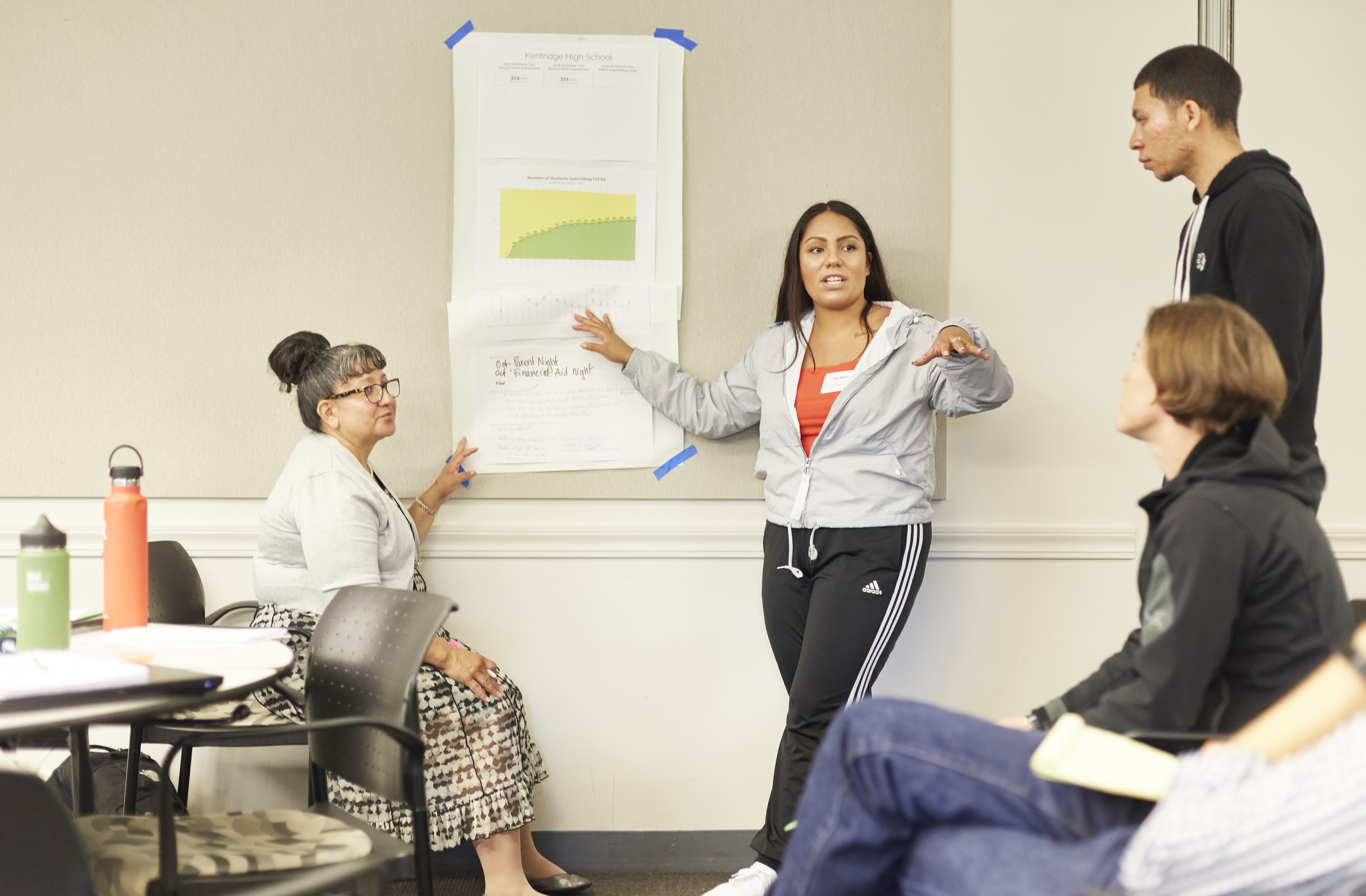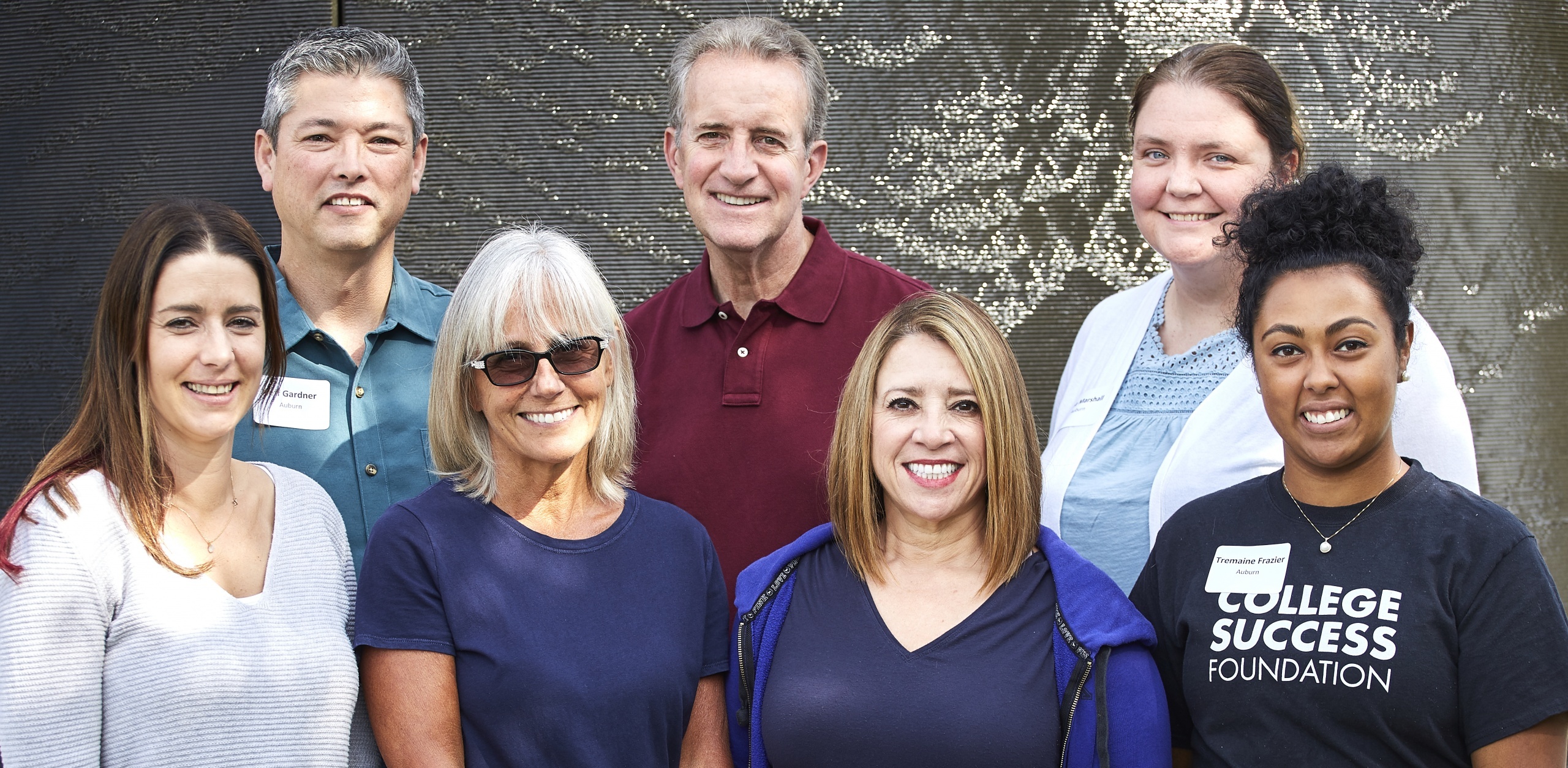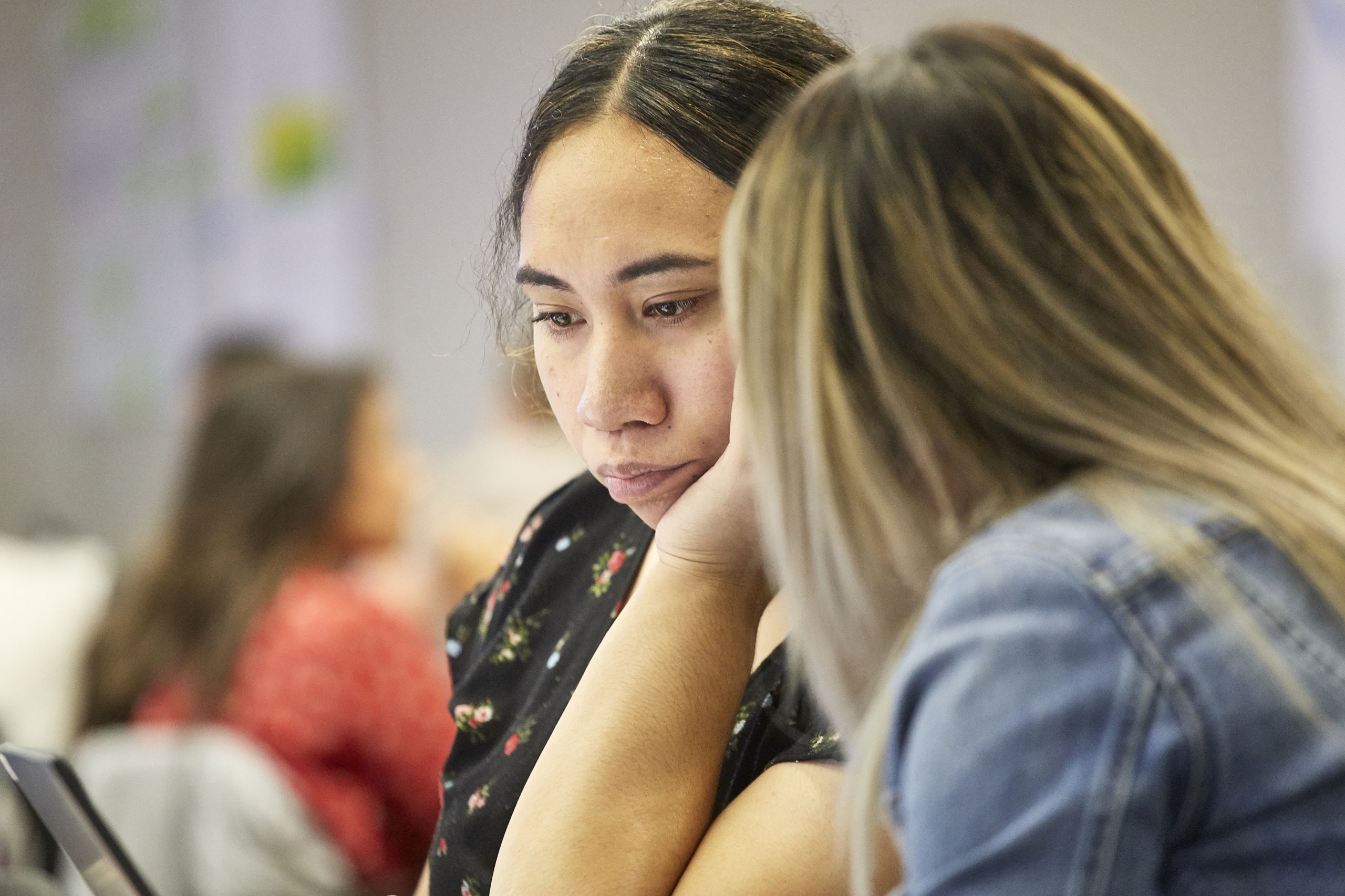
The Kentridge High School team discussing how to improve financial aid completion by process-mapping their students' experiences with financial aid forms.

The Auburn High School team.

School staff members at an Aug. 2019 CCLI workshop.

School staff reflecting on student survey and focus group results.
Nearly every College and Career Leadership Institute workshop begins with this reminder to school staff:
“[Educators should] believe that all of their students can succeed rather than that failure is inevitable for some.”
The quote is from Gloria Ladson Billings’s 1994 book, “The Dreamkeepers: Successful Teachers of African American Children.” CCLI organizers want school staff to be grounded in this belief as they work to improve college and career systems for the success of students of color and those who are the first in their families to go to college.
For the 19 Road Map Project region school teams—11 in the first cohort and eight in the second cohort—that participate in CCLI, listening to students is crucial. The teams hope to reach collective goals (such as raising financial aid application completion) through meaningful schoolwide improvements (such as integrating college and career planning into advisory).
To build towards these goals, CCLI relies on data to track progress. However, traditional methods of data collection—which focus only on student-level outcomes like graduation rates—are not enough. School teams need to understand how school climate, adult supports, and structural access are impacting student success. To get this qualitative data, they need to go straight to the source: the students. That’s why CCLI schools administer an annual student survey, facilitate listening sessions, and make systems-level recommendations based on student experiences. Findings from the first year of CCLI surveys, plus additional listening sessions with students, were compiled in a recent report, “Let Us Succeed.”
These educators are tackling what it truly means to listen to and believe in students—to understand that students’ self-reported information is legitimate data that educators should act on. For some, it’s a challenge to get colleagues on board with this idea. Becky Lamb, formerly the Hazen High School dean of students and now the Lindbergh High School assistant principal, described how her team at Hazen used CCLI student survey data to make changes. “We took [other school staff] the data and showed them this is what the students were saying. Some staff didn’t like it. They thought the survey was bad. But a survey’s not bad just because you don’t like what it’s telling you. And what it was telling us is that we need to do a better job listening to our students.”
When Becky was at Hazen last year, her team built their new homeroom structure based on results from the CCLI student survey. She believes that being equipped with information about what students want and need changed the way staff framed college and career responsibilities. “It’s important to let students know: ‘I hear you’ and then actually make a plan to follow through on what they’re asking for,” she said. “Listening is important, but listening without taking action is not enough.”
Jeff Gardner, Auburn High School principal, also shared his school’s journey. He says that students have often felt like they weren’t being heard, but that efforts to gather student input have also been challenging. “Sometimes, it wasn’t really fun for our staff to hear where kids are coming from. But we’ve regained our resolve and they’re really starting to see that being a culturally responsive school of education is really important. If we’re not doing that, we’re shortchanging our kids.”
The students in CCLI schools are diverse, ambitious, and deserving. Seventy-three percent of them are students of color, and 96 percent of them want to go to college. They live in a region that is rapidly changing, yet go to schools with systems and policies that are stagnant. CCLI is one way that educators are taking responsibility, investing in student success, and making intentional changes.
“We’re all talking about dismantling the system we’ve participated in and we’ve all benefited from. How do you do that? How do you go forward?” said Jeff. “Well, first you have to do better, do things differently to meet the needs of the twenty-first century learner. ‘Cause the world is different than when we went to school.”
In the 2019-2020 school year, CCLI will be building on past years’ work and embarking on new ways of putting students ideas into action. In addition to the annual student survey on college and career aspirations and supports and a staff survey, there will be focus groups and empathy interviews with Latinx students—who have the lowest overall postsecondary enrollment rates and are most likely to be first-generation college students. These ways of gathering qualitative student data intentionally position students as the experts in their own experiences.
The Auburn High School team is already seeing results with their early financial aid completion data and the number of parents who show up to their annual Paying for College event that confirms this approach. “I am so proud of the staff at our school who are taking this work, of educating a diverse population, seriously and with learner’s mindsets for continuous improvement.”
Student engagement will drive the work as all the school teams set goals for strengthening college and career supports, identify ways to improve, and evaluate change.
“Do I think it makes that big of a difference?” said Jeff, “I don’t know, I’d have to ask the kids.”
This story is the third in a series about the College and Career Leadership Institute. Read the first post “How educators can shape college and career readiness strategies together” and the second post “Exchanging best practices: Hazen High School educators visit Kent-Meridian.”
Posted in: College and Career Readiness , College and Career Success